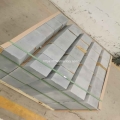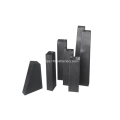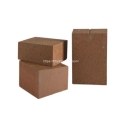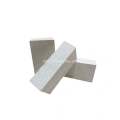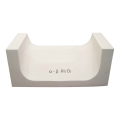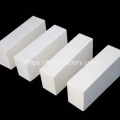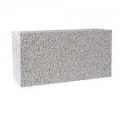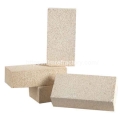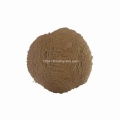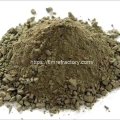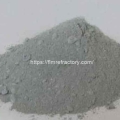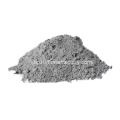- Performance. Innovation. Worldwide. Your trustworthy Refractories Manufacturing Partner--Fireramo
- +86 175 3769 7777
Contact
Contact us on WhatsApp
High Quality Refractory Bricks
Insulation Bricks for Sale
Monolithic Refractory
How to accept refractory bricks?
As an important industrial material, refractory bricks are widely used in various high-temperature furnaces and industrial processes. The quality and reliability of refractory bricks are crucial to industrial production and the safe operation of equipment. Therefore, the acceptance of refractory bricks is particularly important. Fireramo will introduce in detail the acceptance of refractory bricks and precautions to help you ensure that the quality and performance of refractory bricks meet the requirements. If you don’t know about refractory bricks, please read What is a refractory brick?

Acceptance inspection method of refractory bricks
Appearance inspection
First of all, the appearance of the refractory brick is carefully inspected. The surface of high-quality refractory bricks should be flat and smooth, without obvious defects and cracks. At the same time, it is necessary to ensure that the size, shape, density and compressive strength of the refractory bricks meet the project specifications and standard requirements. For shaped refractory bricks, their geometric dimensions should be checked for accuracy to avoid problems such as misalignment or poor fit during installation.
Texture test
The texture of the refractory bricks should be hard and dense, and there should be no obvious looseness, cracks or air holes. These defects will seriously affect the performance and service life of the refractory bricks. Therefore, in the acceptance process, you should use a hand hammer or a hard object to knock on the surface of the refractory brick, and listen to the echo to determine whether the texture is tight. At the same time, you can observe the section of the refractory brick to check whether its internal texture is uniform.
Performance test
Performance testing of refractory bricks is an important part of acceptance. The following performance tests are recommended for refractory bricks:
Compressive strength test
A compressive strength test is carried out on the refractory bricks by means of a pressure tester to assess their ability to withstand pressure.
Impact resistance test
Impact testing of refractory bricks is carried out by means of a hammer impact tester to assess their performance when subjected to impact.
Abrasion Resistance Test
Refractory bricks are subjected to abrasion testing by means of a friction tester to assess their resistance to abrasion during long-term use.
Chemical resistance test
The refractory bricks are subjected to corrosion test by chemical test methods to assess their corrosion resistance in specific chemical environments.
The performance indicators should be in accordance with the relevant standards and design requirements to ensure that the refractory bricks have the required stability and reliability in actual use.
Compositional analysis
Analyzing the composition of refractory bricks can further confirm their quality and performance. Through chemical analysis methods can detect the main components of refractory bricks, impurity content and trace elements. These components should comply with the relevant standards and design requirements to ensure that the refractory bricks have excellent performance in high temperature environments.
Certificate check
Suppliers are required to provide product qualification certificates and inspection reports to prove that the refractory bricks they produce comply with relevant standards and design requirements. These certificates and reports should include production batch, size, composition, performance indexes and other relevant information. The quality and reliability of the refractory bricks can be further verified by checking the certificates.
- 70% High Alumina Brick
- Acid Resistant Brick
- Al-SiC-C Brick
- Anchor brick
- Andalusite Bricks
- Ascending Pipe Precast Refractory
The acceptance process of refractory bricks
Choose a suitable environment
Carry out acceptance in a well-lit and dry environment so as to fully observe the appearance and quality of the refractory bricks.
Check the specification and marking of refractory bricks
Check whether the specification and size of the refractory bricks are consistent with the purchase order or project requirements.
Confirm the marking and lot number on the product to ensure traceability and controllable quality.
Appearance check
Carefully observe the appearance of the refractory bricks and note whether there are obvious cracks, breaks or undesirable deformation.
Check whether the color is uniform and the texture is consistent.
Compressive strength and refractory temperature test
Conduct compressive strength test on a certain number of refractory bricks to ensure compliance with the specified strength requirements.
Confirm that the refractory temperature meets the requirements for the intended environment and working conditions of the refractory bricks.
Recording and archiving
Record problems, results and relevant data found during the acceptance process.
Establish a good archive record, including documents such as proof of purchase and quality inspection report of the refractory bricks.
Confirmation of acceptance results
Assess whether the quality of refractory bricks is qualified according to the acceptance criteria and requirements.
If you find that the quality does not meet the requirements or there are problems, contact the supplier in time to discuss the solution.
- Magnesia brick
- Fused Rebonded Magnesia Chrome Brick
- Magnesia Spinel Brick
- Magnesia Iron Spinel Brick
- Magnesia Alumina Brick
- Magnesia Zirconia Brick
The acceptance of refractory bricks notes
Strictly follow the standards
In the acceptance process, should strictly follow the relevant national and industry standards to ensure that the indicators meet the requirements. If you need special specifications or customized refractory bricks, you should consult with the supplier and clarify the specific technical requirements and quality standards.
Reference to contract terms
When signing a purchase and sales contract or technical agreement, key terms such as quality standards, acceptance methods and liability for breach of contract of refractory bricks should be clearly agreed upon. This helps to maintain the consistency of both parties’ opinions during the acceptance process and ensure that their respective rights and interests are not jeopardized.
Emphasis on storage and use conditions
During storage and use, refractory bricks should be avoided from physical damage or chemical corrosion. Refractory bricks should be stored in dry, well-ventilated warehouses and regularly inspected and maintained to ensure their long-term effectiveness.
Create acceptance records
Create detailed acceptance records for each batch of refractory bricks, including appearance inspection, performance testing, composition analysis and other relevant information. This helps to track and trace the quality and performance of each piece of refractory bricks, providing a reference basis for subsequent use and maintenance.
Acceptance of refractory bricks is an important part of ensuring the quality and safety of the project. Strictly following the standards and requirements for acceptance helps ensure that the refractory bricks have good durability and stability during use. At the same time, timely processing and recording of the problem is conducive to the emergence of quality problems can be traced and resolved to ensure the smooth progress of the project and safe operation.
Specializing in refractory materials for over 20 years, we provide professional refractory solutions for the global high temperature industry.
Theme By Fireramo
